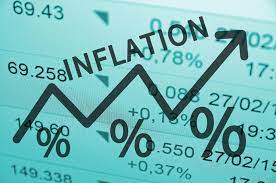
According to the predictions of the Organisation for Economic Co-operation and Development (OECD), prices in most countries of the G20 group of major economies will continue to rise faster than the rates seen prior to the pandemic for a period of two more years.
The Paris-based policy forum the OECD said that the prices of various commodities including food prices are being pushed up because of higher commodity prices and shipping costs, resulting in higher inflation rates than policy makers would desire.
For example, the OECD forecast that the rate of inflation in the United Kingdom is expected to continue to be at about 3 per cent till about 2022 which is among the best rate of inflation within the advanced economies.
At the same time, the policy making think tank forecast a drop in inflation in the United States, France, and Germany for the same period.
A significant increase in costs of raw materials, severe bottlenecks in the availability and supply of products, significantly stronger consumer demand with the reopening of economies, and the re-bouncing of costs from huge lows during the pandemic in some industries and sectors are the primary drivers in the pickup of inflation, the OED said.
A sharp rebound in general demand levels from consumers from the low levels seen during the pandemic, significant disruptions in the global supply chains and with stores depleted of products have all contributed to the pushing up of prices as well as shipping costs around the world.
The OECD warned of an extended period of inflation towards the upper level of ranges could occur because of persistent supply chain bottlenecks.
According to the forecast of the OECD, there will be a moderation in the rate of inflation in the G20 countries from about 4.5 per cent at the end of 2021 to about 3.5 per cent by the end of 2022.
However, the OECD said that "sizeable uncertainty remains" about this forecast.
"Faster progress in vaccine deployment or a sharper rundown of household savings would enhance demand and lower unemployment but also potentially push up near-term inflationary pressures," it said during a report.
"Slow progress in vaccine rollout and therefore the continued spread of latest virus mutations would end in a weaker recovery and bigger job losses," the think tank said.
The easing of inflationary pressure and elements contributing to price rise will also result in a drop in the rate of inflation in many of the G20p countries, according to some economists.
However, there are others who are of the opinion that there would be persistent levels of high inflation because of massive amounts of state borrowing and spending during the pandemic
(Source:www.bbc.com)
The Paris-based policy forum the OECD said that the prices of various commodities including food prices are being pushed up because of higher commodity prices and shipping costs, resulting in higher inflation rates than policy makers would desire.
For example, the OECD forecast that the rate of inflation in the United Kingdom is expected to continue to be at about 3 per cent till about 2022 which is among the best rate of inflation within the advanced economies.
At the same time, the policy making think tank forecast a drop in inflation in the United States, France, and Germany for the same period.
A significant increase in costs of raw materials, severe bottlenecks in the availability and supply of products, significantly stronger consumer demand with the reopening of economies, and the re-bouncing of costs from huge lows during the pandemic in some industries and sectors are the primary drivers in the pickup of inflation, the OED said.
A sharp rebound in general demand levels from consumers from the low levels seen during the pandemic, significant disruptions in the global supply chains and with stores depleted of products have all contributed to the pushing up of prices as well as shipping costs around the world.
The OECD warned of an extended period of inflation towards the upper level of ranges could occur because of persistent supply chain bottlenecks.
According to the forecast of the OECD, there will be a moderation in the rate of inflation in the G20 countries from about 4.5 per cent at the end of 2021 to about 3.5 per cent by the end of 2022.
However, the OECD said that "sizeable uncertainty remains" about this forecast.
"Faster progress in vaccine deployment or a sharper rundown of household savings would enhance demand and lower unemployment but also potentially push up near-term inflationary pressures," it said during a report.
"Slow progress in vaccine rollout and therefore the continued spread of latest virus mutations would end in a weaker recovery and bigger job losses," the think tank said.
The easing of inflationary pressure and elements contributing to price rise will also result in a drop in the rate of inflation in many of the G20p countries, according to some economists.
However, there are others who are of the opinion that there would be persistent levels of high inflation because of massive amounts of state borrowing and spending during the pandemic
(Source:www.bbc.com)





